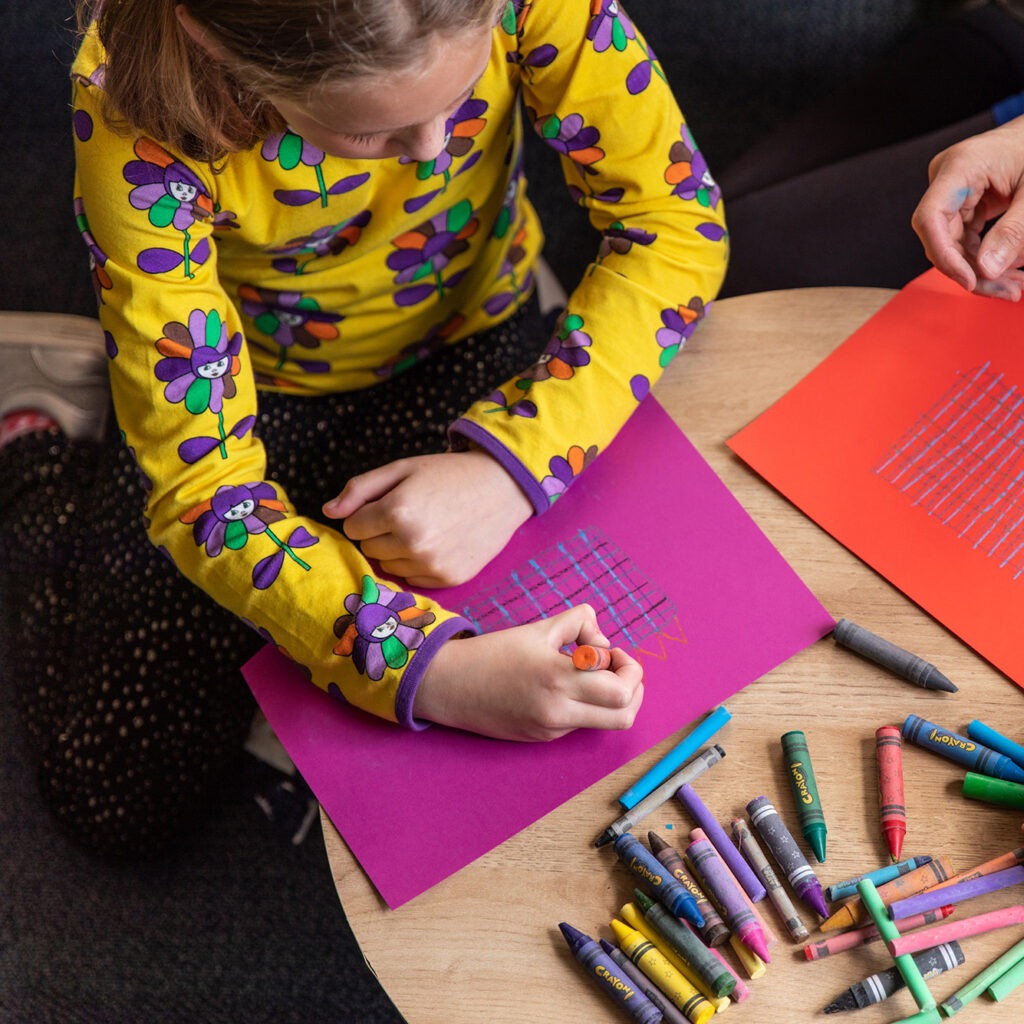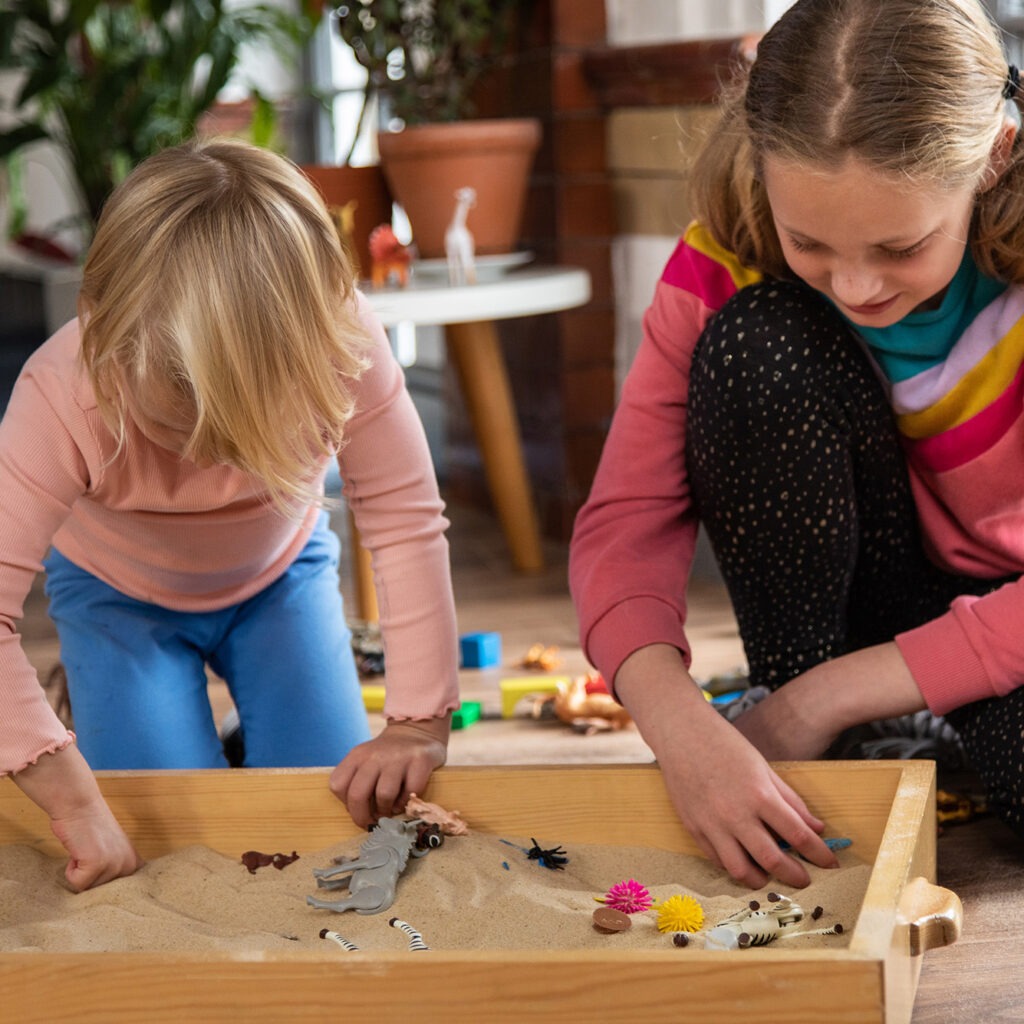Play Therapy

What is Play Therapy?
Life can sometimes be challenging, difficult or even complicated. This is true for adults and children alike. As parents, carers or teachers we want to help a child who is struggling with something, but how can you talk about what’s troubling when you’re not sure what the actual problem is? And who manages to find all the right words to express what they’re feeling? Certainly not children. For a child, play is essential to their emotional, social, physical, cognitive, language and creative development. Play is a child’s natural form of expression, and Play Therapy helps children understand the feelings and life experiences they haven’t had a chance to sort out properly.
Perhaps there’s been a change in a child’s life, either a long time ago or more recent, and the child finds it difficult to adapt. One change that drastically affected children everywhere is the Covid pandemic, and living life in ‘lockdown’. Most children, as well as adults, experienced increased anxiety during and after this time.
In Play Therapy children use play to communicate at their own level and at their own pace. As a non-directive Play Therapist I don’t hurry the child in any way. Instead, I follow the child’s lead and they will guide me, through their play, to the source of their issue. If invited I will join in the child’s play. I also make tracking statements, give reflections, and mirror the child’s play to help the child gain insight into their feelings. I might also offer questions or a gentle hypothesis if a child appears ready to explore an issue more directly.
As a Play Therapist and Mental Health Professional, my top priority is to create a safe and confidential therapeutic space for the child, so they feel free to naturally express both what pleases and bothers them. Non-directive Play Therapy is a way of being with the child that is respectful of them as a unique person and of their unique developmental level.

Who is Play Therapy For?
There are many reasons why children are referred. Play therapy can help children who are experiencing a range of social, emotional, and/or behavioural difficulties, such as (or related to):
• Low self-confidence
• Anxiety, stress or phobias
• Anxiety created by peer pressure, social media, exam pressure, COVID 19
• Difficulty achieving academic potential
• Difficulty concentrating or learning
• Bullying or being bullied, difficult peer interaction
• Inappropriate emotional responses and mood swings
• Behavioural delays or regression
• Struggling with communication
• Nightmares or disturbed sleep, bedwetting
• Parental and family separation
• Bereavement and loss
• Trauma, abuse and neglect
• Domestic violence
• Physical or developmental disability, illness
• Self-harm or internalising behaviours
• Aggression or externalising behaviours
• Being shy or withdrawn
Play Therapy can also help looked-after and fostered children, young carers, children who have attachment and relationship difficulties, as well as neurodivergent children.
How is Play Therapy Delivered?
I offer weekly 1:1 Play & Creative Arts Therapy sessions to children aged 4-13. Sessions are held at the same time and in the same place each week, lasting 45 minutes each. I currently work within primary school and home settings. Children usually receive a minimum of 12 sessions, and typically children need between 18-24 sessions, but it could be longer in case of deep-seated issues or deep trauma. It all depends on the individual child. Within the Play Therapy room boundaries are clearly set to keep both of us safe. The child is free to choose to play or not, and they have access to the Play Therapy Toolkit consisting of: dry and wet sand trays and sand miniatures, clay, musical instruments, role-play and dressing up toys, art materials including paint and play dough, hand-puppets, various toys (animals, fantasy figures, vehicles, Lego, Playmobil), therapeutic stories, creative visualisation, movement and dance.
I can also work with small groups of children (4 children maximum) if they share a similar issue, for a minimum of 6 sessions. Group therapy sessions tend to be short-term.
What Are The Outcomes Of Play Therapy?
Research supports the effectiveness of play therapy with children experiencing a wide variety of emotional, behavioural, social and learning difficulties. It is good to keep in mind that Play Therapy is not a miracle cure that fixes every problem, but in the majority of children who receive Play Therapy a positive change takes place. The outcome may be general, such as reduced anxiety and increased self-esteem, or it could be a more specific outcome such as improved social interaction or a change in the child’s behaviour.